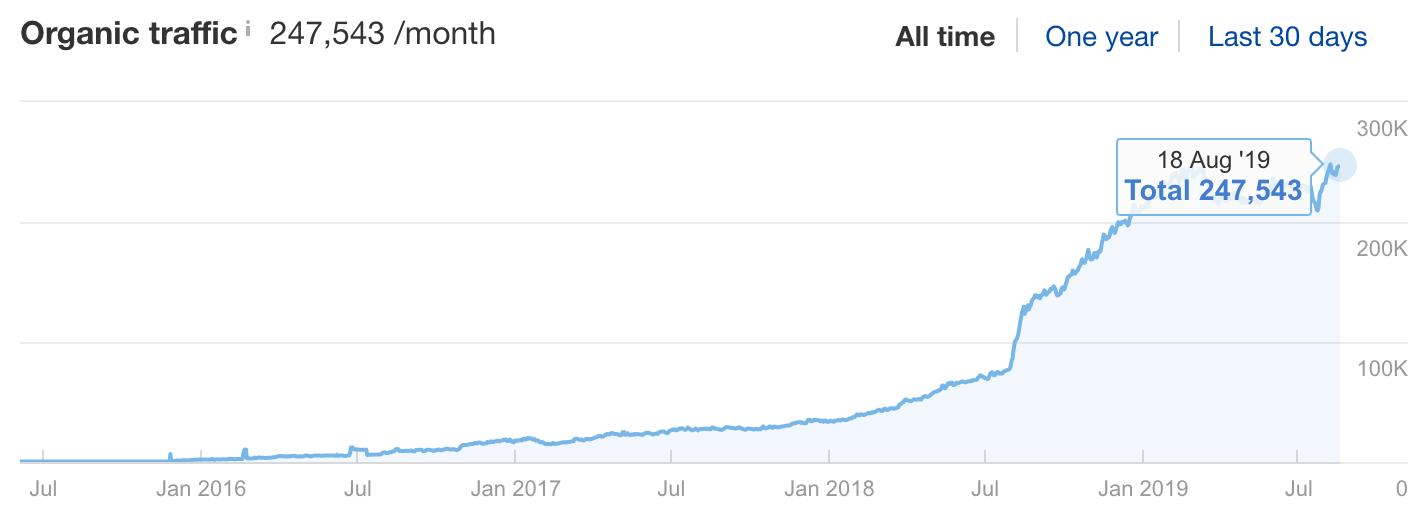SEO or PPC: When To Use Each
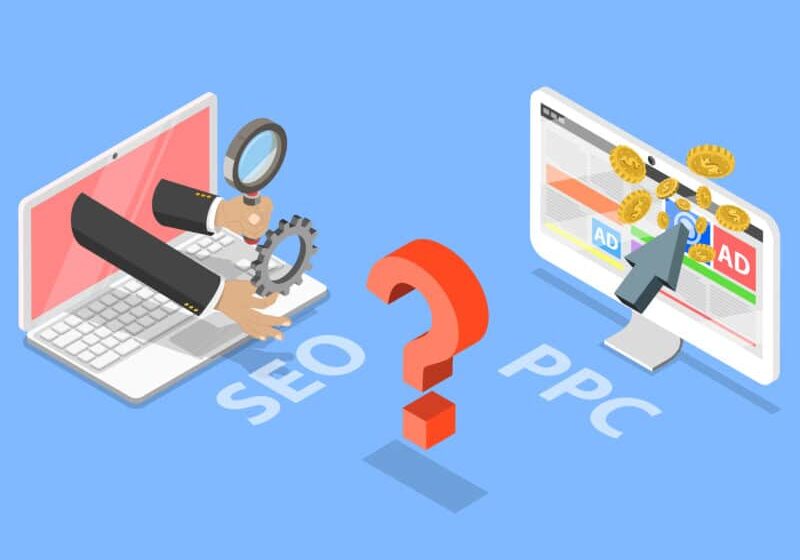
By Prebuilt Sites Team
December 10, 2021
EDITOR’S NOTE: If you’re struggling to decide if you should use SEO or PPC for your business, this post is for you! Both have their pros and cons and are good for different situations. SEO takes time to build, but also does not require an upfront cost and has a higher staying power in the long term. PPC is great for getting traffic quickly to your pages, but also costs money and can lose its effectiveness over time. When should you use each for your business? SEO is great for informational content, or if you are selling a product that people are searching for. If you have an innovative product, a new launch, or a limited time sale, chances are you’d want to gain as much traffic to your sales pages as quickly as possible, so PPC ads would be the better option. The best businesses use a mix of both SEO and PPC ads. If you have any questions about SEO or PPC and when to use each or want some help creating/implementing them in your business, reach out to us at The BBS Agency, we’d love to help you out!
Three years ago, I was working at a new startup.
With just a teeny marketing budget, I had to choose: SEO or PPC?
With no real marketing experience and an interest in content creation, I decided on SEO. I implemented strategies I learned from SEO blogs, and eventually managed to rank the site for a few keywords related to our product.
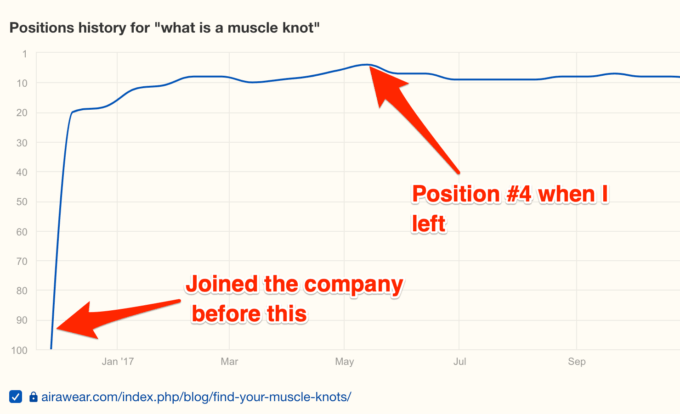
Photo: Ahrefs
Would it have been better to use PPC right from the get-go? I’ll never know.
Fortunately, I’ve learned a lot about both channels since then. And in this post, I’ll compare the pros and cons of both SEO and PPC, explain how you can decide which is better for your business, and show how we use them in tandem at Ahrefs.
But first, let’s cover the basics.
SEO
Search engine optimization (SEO) is the process of optimizing your website and webpages to rank in the organic results in search engines like Google and Bing.
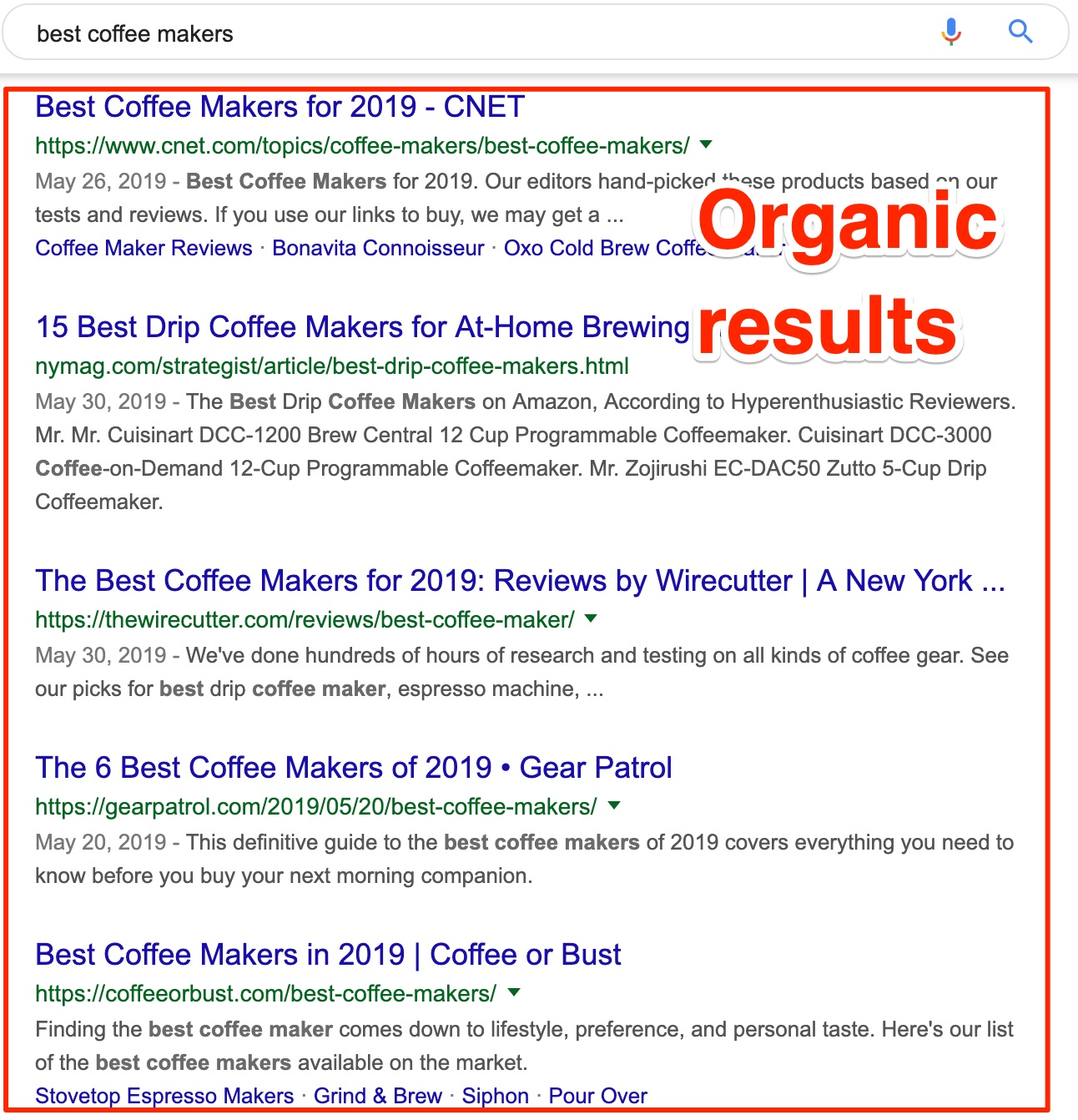
Photo: Ahrefs
The challenging part about SEO is that you can’t pay to appear here. Search engines have algorithms that calculate the quality and relevance of your page and rank you accordingly.
As such, a big part of SEO is figuring out what the search engines deem important, and then optimizing your website and web pages accordingly.
Want to learn how SEO works? Here’s a simple tutorial you can follow.
Pros
Let’s look at the advantages of SEO:
1. Organic traffic has staying power
As long as you can rank highly in Google for your desired keywords, you can generate consistent search traffic to your website.
This is what it looks like if you succeed with SEO:
Our entire marketing team could take a short break and traffic would continue to flow.
Contrast that with other marketing channels.
Paid marketing is like a faucet. Turn on the tap and traffic will flow. But as soon as the tap is off (i.e. you run out of money), your traffic will dry up.
Likewise for social media. In today’s world, social media is a pay-to-play game. Refuse to pay and your engagement will likely drop.
This is why plenty of marketers consider SEO one of the best channels for long-term, scalable results.
2. SEO is often cheaper in the long-term
The Ahrefs blog ranks for over 120,000 keywords and gets an estimated 240,000+ search visitors a month.
If we were to buy that traffic through PPC, it’d cost us an estimated $733,000 per month (or $8.8 million per year.)

Photo: Ahrefs
Given that there are only three to four people on the team creating content, and we’re not getting paid $2 million each in salaries, it’s reasonable to say that SEO is cheaper in the long run.
Cons
Here are some downsides to SEO.
1. SEO takes time
In 2017, we conducted a study to find out how long it takes to rank in Google. We randomly selected two million pages and tracked the positions of all keywords they ranked for.
Turns out: only 5.7% of pages rank in the top 10 for at least one keyword within a year of publishing.
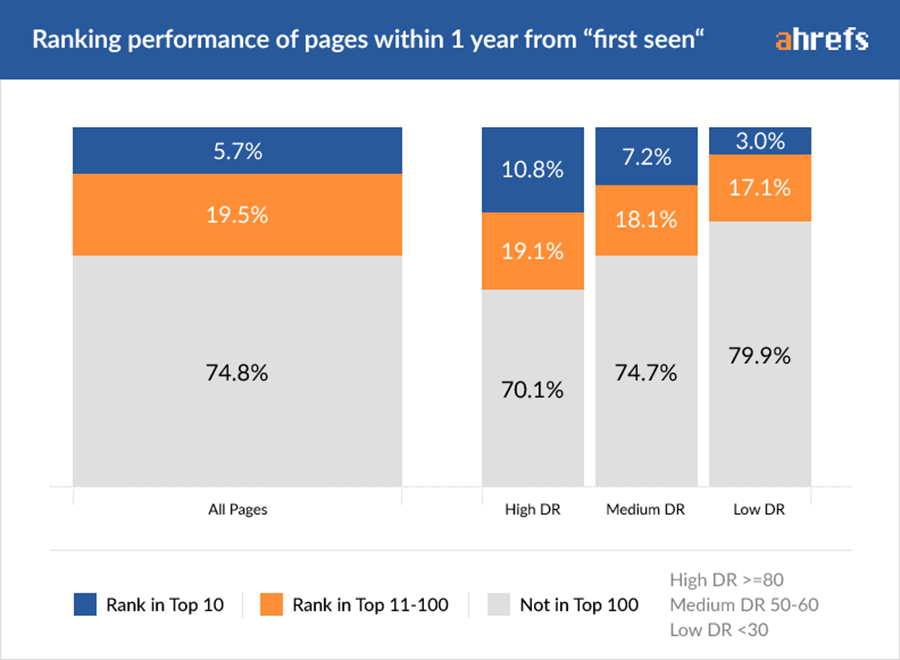
Photo: Ahrefs
Even most of the “lucky” 5.7% take about 2–6 months to rank in the top 10.
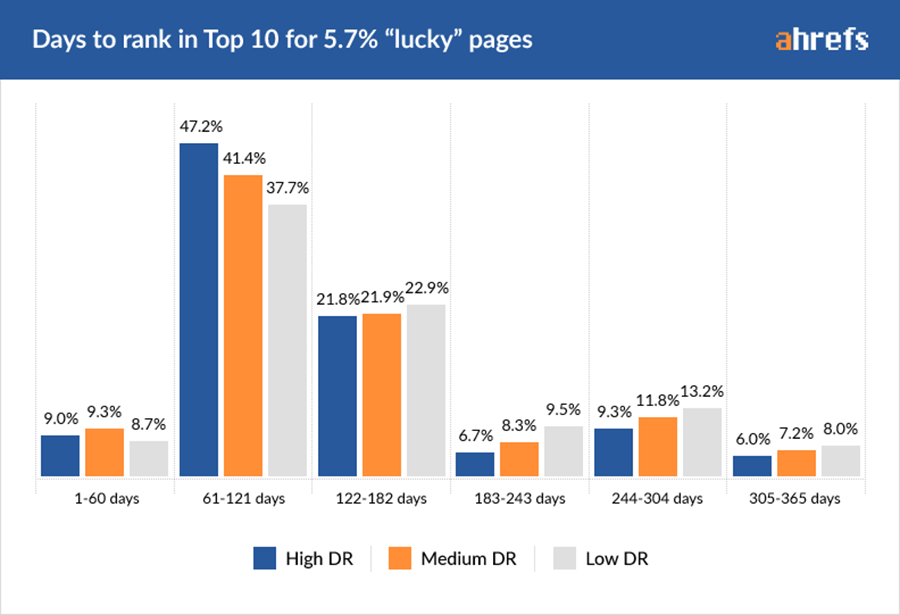
Photo: Ahrefs
As you can see, SEO takes time.
If you only have a short window to make an impact, SEO might not be the right strategy for you.
2. SEO requires unique and authoritative content
Imagine that you’re trying to prepare a delicious plate of duck confit. Who would you rather learn from, Marco Pierre White or me?
The answer is obvious. With Marco, you’ll create the perfect dish. With me, you’ll burn the duck.
People are the same online. When it comes to consuming, sharing and linking to content, people prefer to learn from subject matter experts.
Therefore, to do well in search, you’ll likely need expertise.
If you’re the domain expert, great! Create the content yourself. If not, hire someone to create it for you. You could even interview authorities, like Malcolm Gladwell does for his books.
The problem is that these solutions can be too expensive and time-consuming for small-and-medium-sized businesses with limited resources.
PPC
Pay-per-click (PPC) is an advertising model where you pay for clicks to your website. It’s typically associated with search engine advertising like Google Ads.
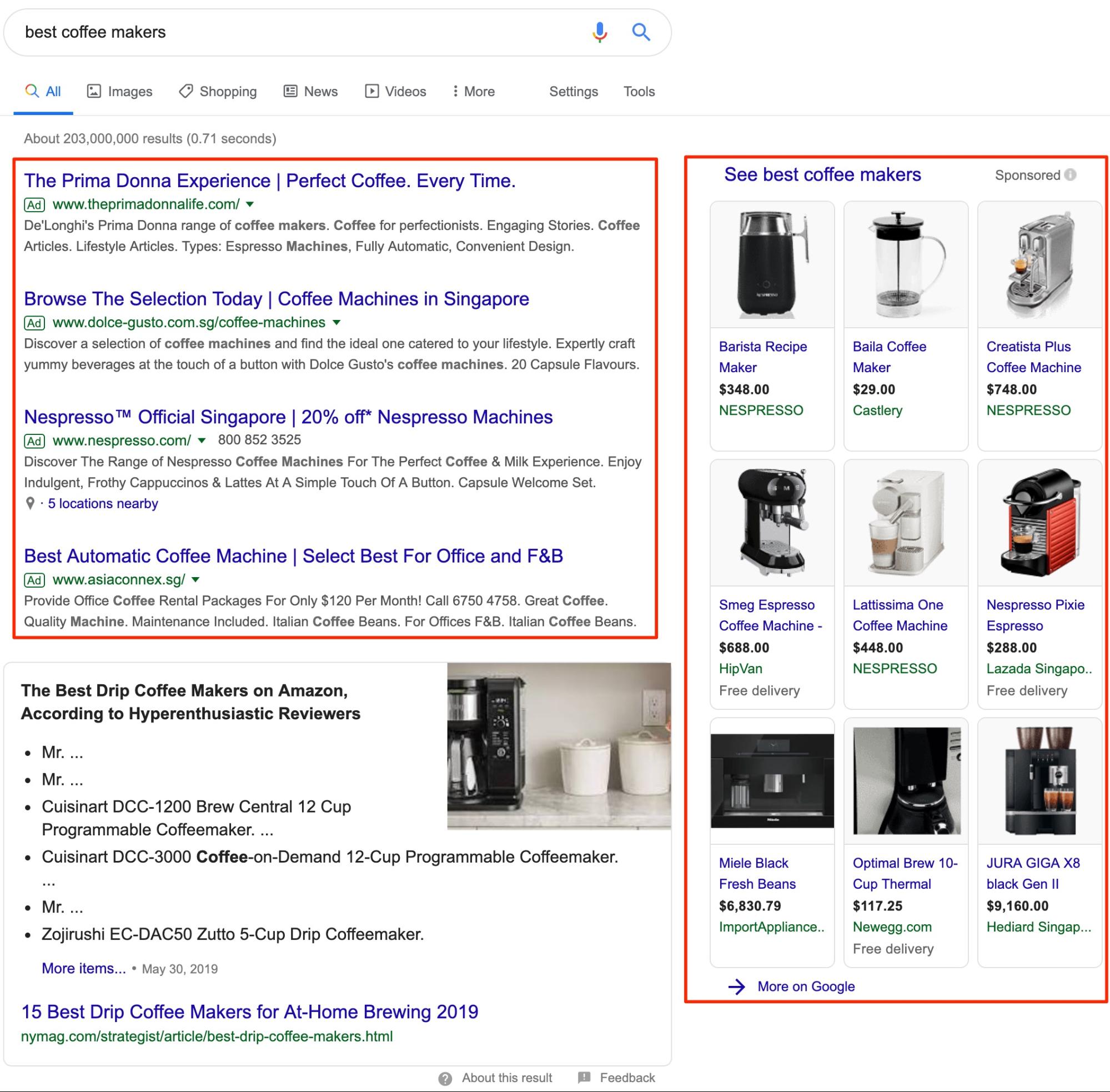
Photo: Ahrefs
Today, most social media networks like Facebook, Twitter, and Quora have also adopted PPC as their primary business model.
Pros
What are some advantages of PPC?
1. PPC is fast
For SEO to work, you might need to wait days, weeks or even months. For PPC, it’s much quicker.
You can head over to any ad platform and start a campaign right away.
2. PPC allows for granular targeting
With PPC, you can play around with different types of data (demographics, geography, etc.)
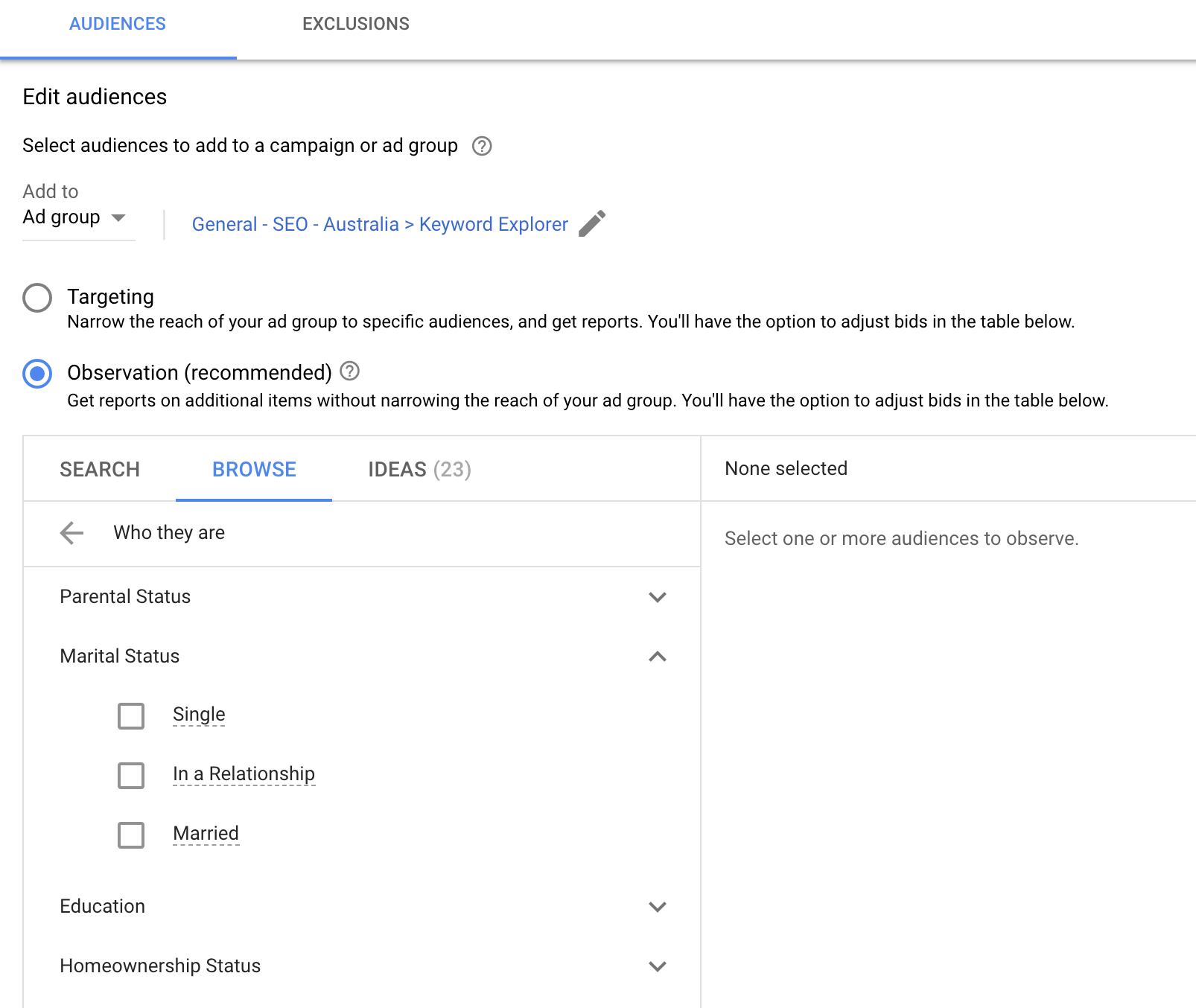
Photo: Ahrefs
As such, you can control and pay only for the people you want on your website.
3. PPC allows for quick experimentation
The nature of PPC is fast feedback. You can set up a campaign, run A/B tests and monitor the results to figure out what works and what doesn’t.
Comparatively, SEO is slower and thus it can be difficult to attribute success or failure to any single individual change or tactic.
Cons
PPC is not all sunshine and roses. There are some downsides.
1. PPC can get prohibitively expensive
If you’re in a competitive industry like insurance, PPC can get expensive fast.
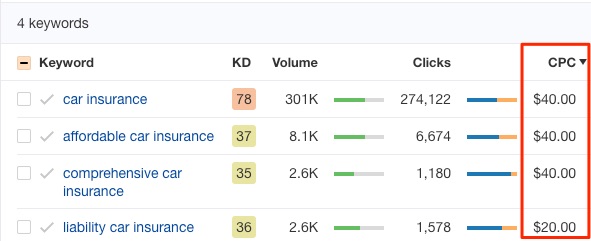
Photo: Ahrefs
For example, it’ll cost you $40 per click on average if you’re bidding on the keyword “car insurance.”
DropBox experienced this firsthand in 2009. After experimenting with Google Ads, they quickly discovered that they were getting a cost-per-acquisition (CPA) of $233 — $388. The worst part: their product was only $99.
They were losing money running Google Ads.
2. PPC can lose effectiveness
While PPC is easy to scale, scale effects can work against it.
As Andrew Chen puts it:
“The longer your campaigns run, the less effective they become – people start seeing your ads too often. The messaging becomes stale, and novelty effects are real.”
Ad blindness is real. You’ll have to constantly create new copy, images and refresh your existing ads in order to make them work in the long-term.
3. You’ll need money to make money
With PPC, you’ll need money to begin a campaign. It is also likely that you’ll lose money in the first few months as you figure out how to optimize your campaigns.
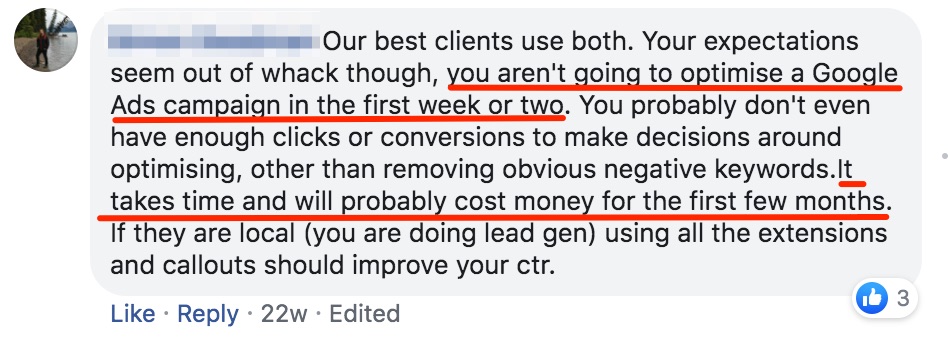
Photo: Ahrefs
You need to be realistic about how long it takes to optimize a PPC campaign.
If you’re a new startup with a $0 marketing budget, it might be costly for you to begin running profitable ads.
SEO vs PPC: Which is better for my business?
The real answer: it depends.
Neither is better or worse than the other. Both are legitimate sources of traffic.
That said, there are some situations where one channel may make more sense.
Here are a few:
1. You have an innovative product
To get organic traffic, you’ll need to target topics that people are already searching for. But if you’re building a disruptive company with an innovative product, it is likely that no one is looking for it.
Think back to the famous quip by Henry Ford, “If I had asked people what they wanted, they would have said faster horses.” If Google had existed back then, people would be searching for “how can I make my horse run faster”, rather than “car.”
No one would have searched for “ride hailing” before Uber was formed in 2009.

Photo: Ahrefs
In this scenario, it might be better for you to leverage social media PPC to build awareness for your product or service.
2. You’re gearing up for a launch / you have a one-time offer
Are you preparing for a Kickstarter launch or promoting a one-time event? SEO might not be the right strategy.
SEO will take time. Your event might be over before you even start ranking.
In this case, you might want to consider using PPC or other channels like influencer marketing.
3. You’re trying to promote commercial content
Generally speaking, people don’t want to link to commercial content like landing pages.
To rank one in organic search, you’ll have to consider using strategies like the Middleman Method. Here’s an animation of how it works:

Photo: Ahrefs
If you need results quickly, then consider using PPC as you can drive traffic directly to a landing page.
4. You’re building a site with the intention to sell
According to EmpireFlippers, this is the formula for how a website is valued:
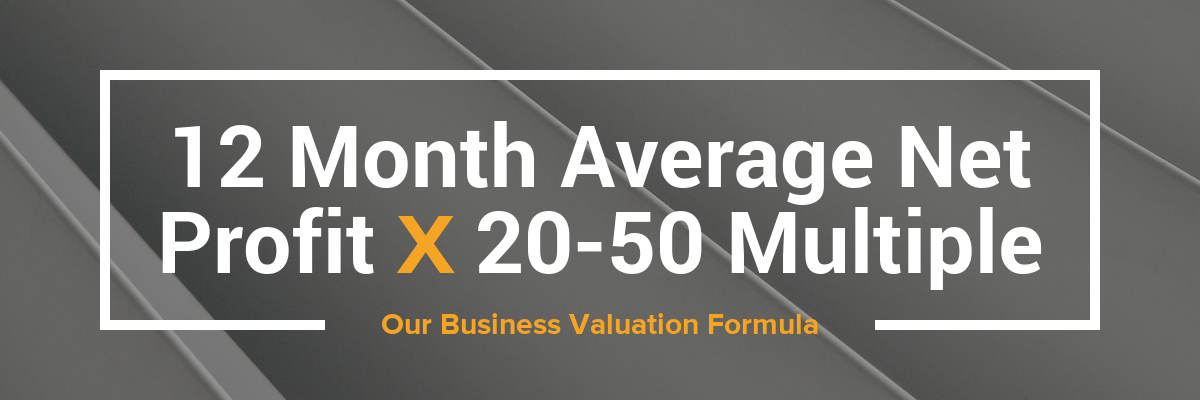
Photo: Ahrefs
If you wish to sell your site, you should “manipulate” the multiple in your favour.
How? Using SEO.
Buyers love SEO because you don’t have to monitor the campaign actively. Once you rank in Google for your desired keywords, it often takes less work to manage compared to PPC.
One reason for this is the vicious cycle of SEO.
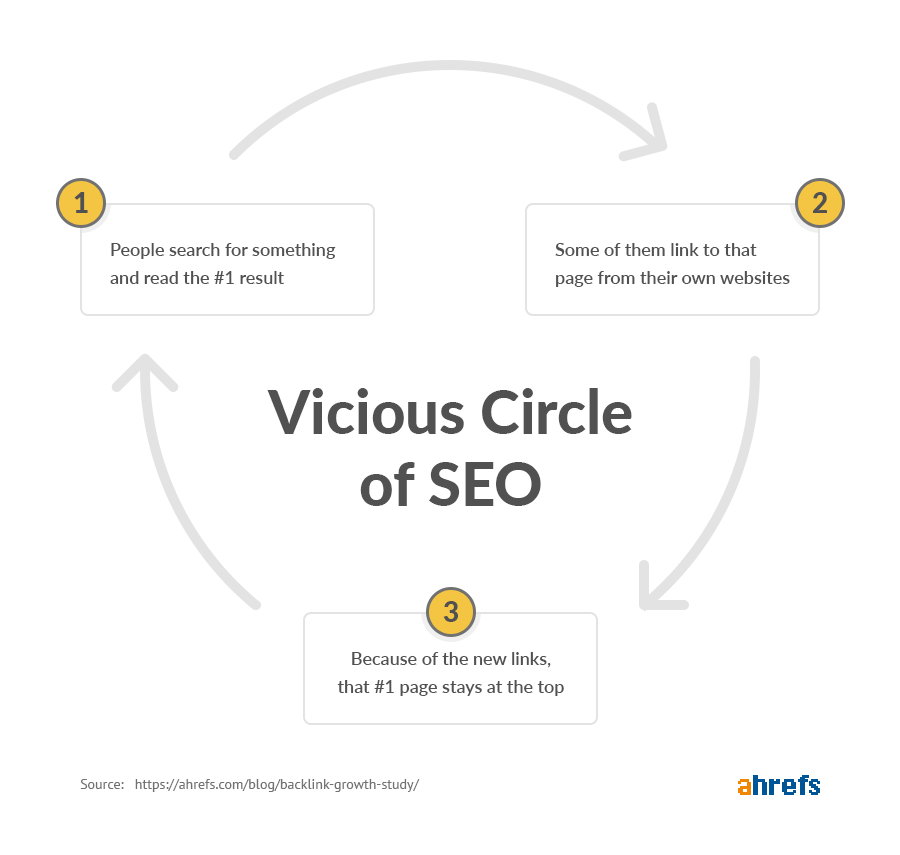
Photo: Ahrefs
Ranking in the first place means more and more people link to you naturally over time. And because links correlate with rankings, your rankings stay put.
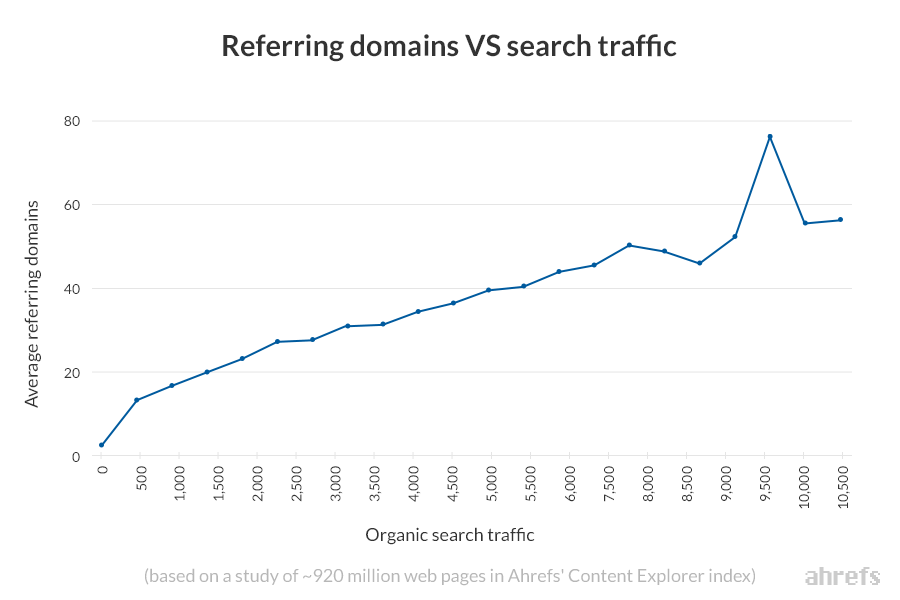
Photo: Ahrefs
With PPC, ad blindness and scale effects are present. You have to constantly manage and refresh your campaigns so they don’t break or go stale. Plus, if the ads stop working, the business could potentially die overnight.
Not a good sign for buyers.
Thus, if you’re into the website flipping business, it might be better for you to focus on SEO.
Recommended reading: Just How Much is Your Website REALLY Worth? A Simple Valuation Guide
Don’t see yourself in any of those scenarios? Then run experiments to figure out which is better for your business.
For this, I’d recommend using The Bullseye Framework. Created by Justin Mares (Founder, Kettle and Fire) and Gabriel Weinberg (CEO & Founder, Duckduckgo), this is a simple framework that can help you find a traction channel.
Here’s the 3‑step process:
- Brainstorm potential traction channels. Who is your target customer and where can you find them? For example, if you’re selling jewelry online, Pinterest Ads might be a viable channel.
- Construct small cheap tests to determine if the idea is good. Before you invest a significant portion of your budget into a marketing channel, make sure it delivers ROI for you. For example, you might want to run a small PPC campaign on Pinterest to test if it actually drives sales.
- Double down on the best channel. As you’re running simultaneous traction tests, one of these channels will emerge as a “winner.” (i.e. gives you the best ROI.) This is the channel you should invest in.
If you want to learn more about the Bullseye Framework, read this guide or their book Traction.
SEO and PPC: Using them in tandem
The best businesses use both SEO and PPC because they compliment each other. After all, if both channels are profitable, why wouldn’t you want to do both?
This is exactly what we do at Ahrefs.
SEO is our second largest driver of users (after word of mouth). But we don’t neglect the paid side either. Both channels work, so we leverage the two to maximize their effectiveness.
Here’s what we do:
1. Use Facebook Ads to build awareness
Each post we publish takes 10–20 hours to write on average. Not wanting that work to go to waste, we run Facebook ads to get it in front of as many interested people as possible.
Running PPC ads also seems to help us acquire backlinks, even though this isn’t our primary aim.
This makes sense. After all, nobody can link to content unless they know it exists. PPC ads help with this.
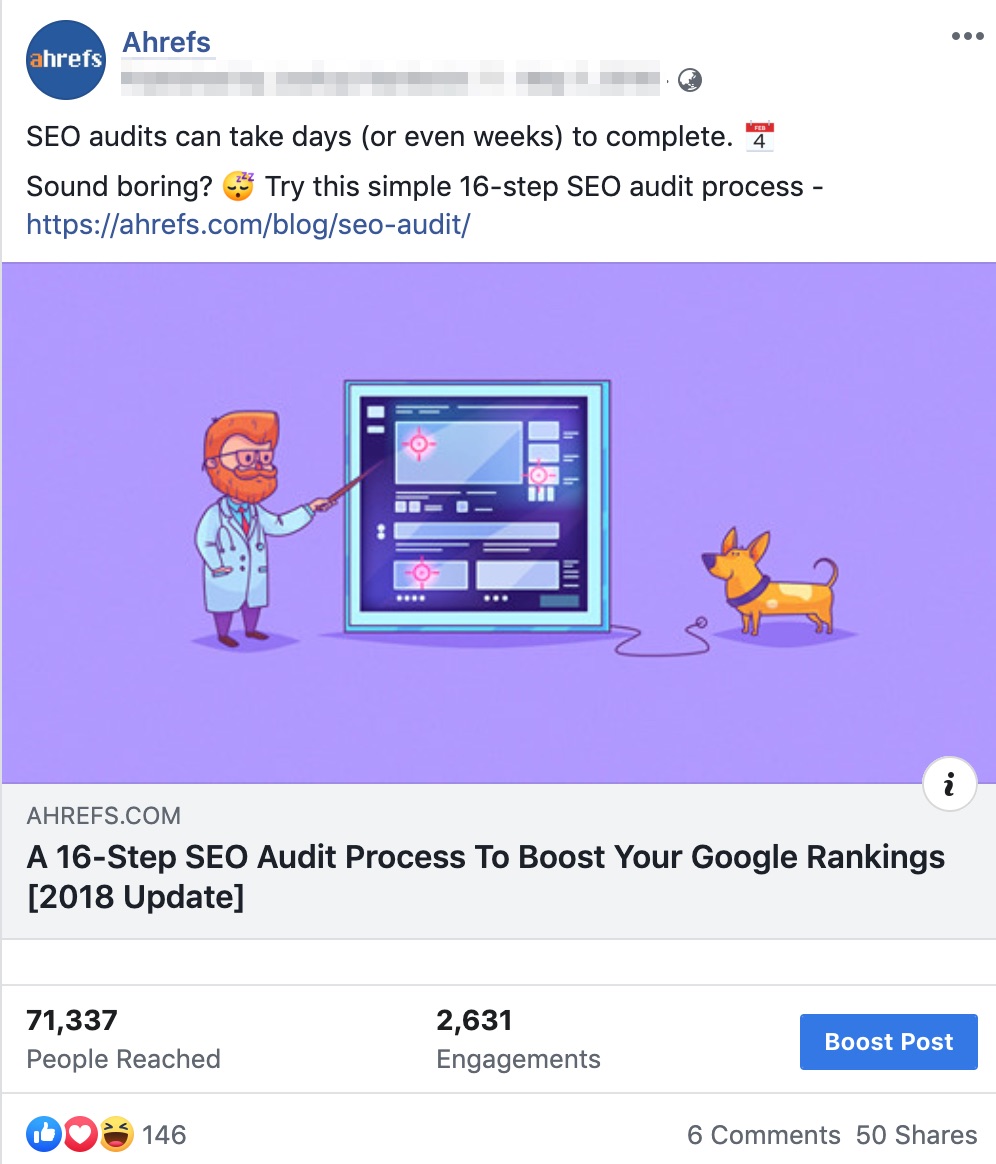
Photo: Ahrefs
For example, the SEO audit guide being promoted in the ad above currently has 519 backlinks from 239 referring domains.

Photo: Ahrefs
Interestingly, we didn’t do any outreach for this post. We only promoted it via our newsletter and Facebook ads, which means the backlinks came about because the right audience saw it.
2. Retargeting
Retargeting is a form of online advertising that allows you to target visitors who have left your website. This gives you the opportunity to persuade visitors to come back and reconsider a purchase.
Here’s how it works for us at Ahrefs.
We get tons of search traffic to our blog.
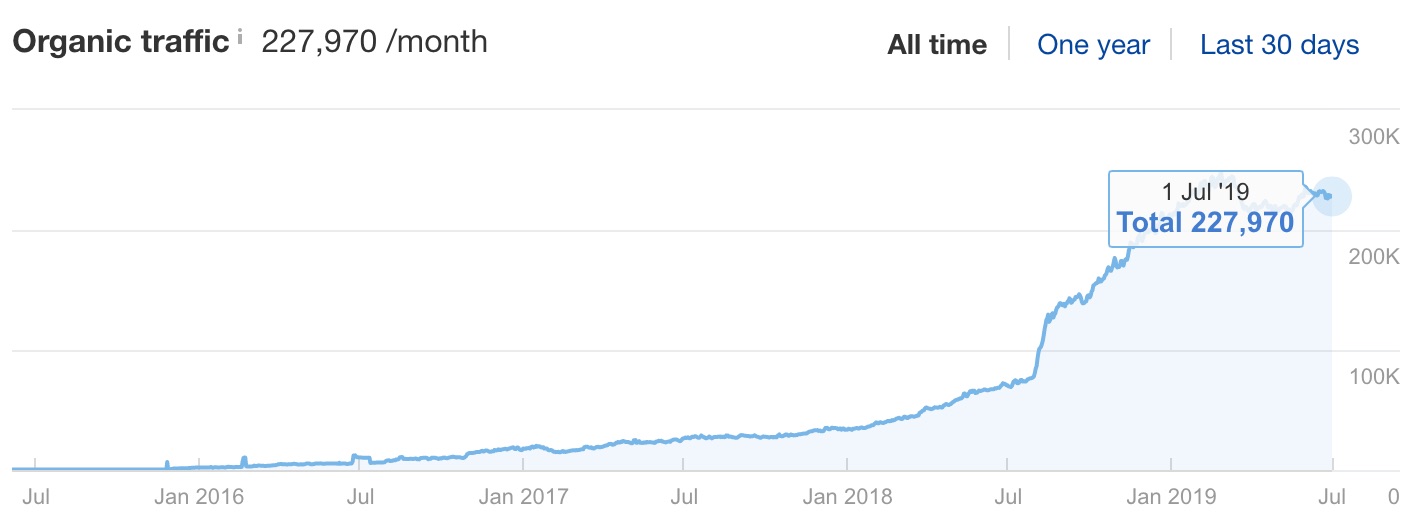
Photo: Ahrefs
Some people that read our articles decide that Ahrefs is the tool for them, and sign up right away.
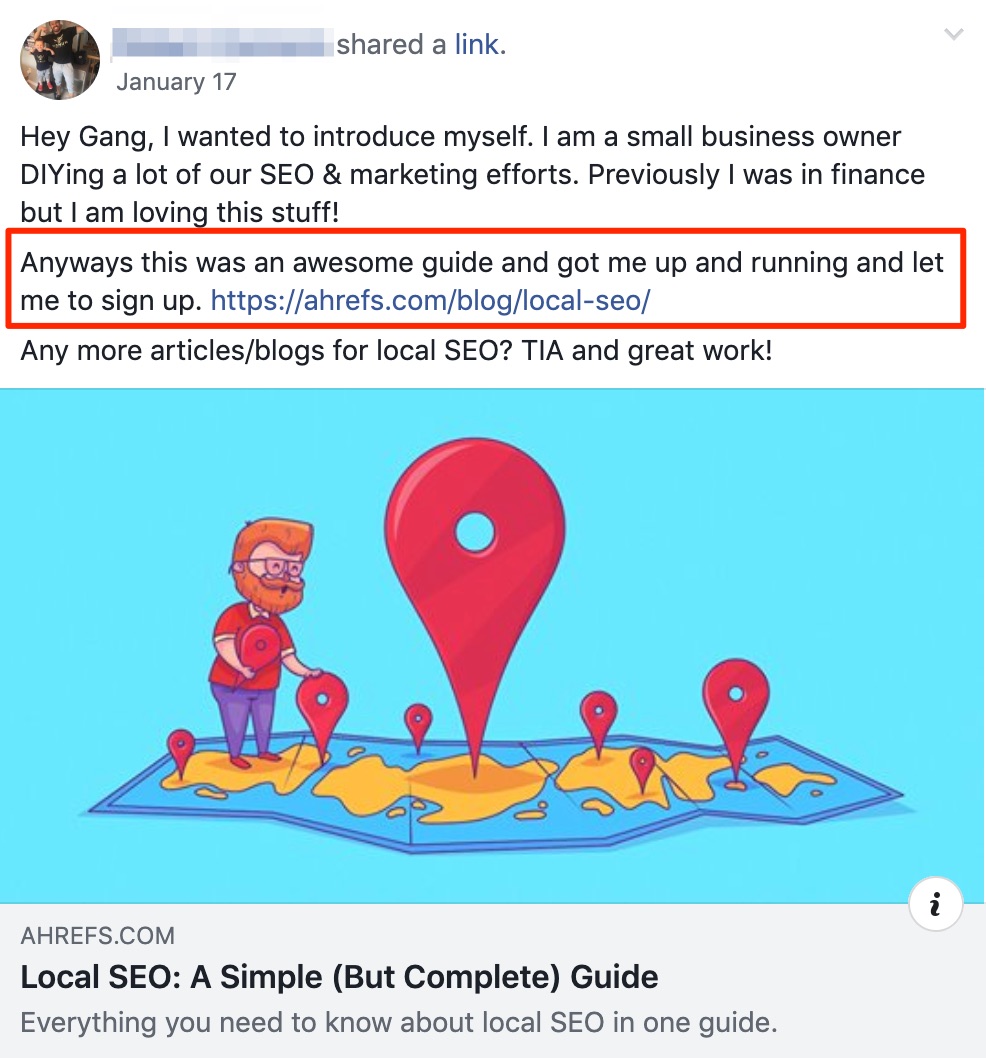
Photo: Ahrefs
However, most don’t. And because so many people read our blog articles, they may not realise that we have a 7‑day trial.
So, if they’ve visited certain pages on our site, we retarget them with an offer to pick up our trial.
As you can see, it’s not complicated.
We mainly use Facebook ads for retargeting. But keep in mind that that’s not the only platform that allows retargeting.
You could do retargeting on most other PPC platforms too.
As of July 2019, we’ve stopped running most retargeting ads on Facebook due to privacy concerns.
3. Pursue keywords your competitors are bidding on
Imagine if you could see the keywords your competitors are bidding on in Google Ads? That way, you could find potentially lucrative keywords and pursue them either via PPC or SEO.
Luckily, you can. Just paste a competing domain into Site Explorer and head to the “PPC keywords” report.
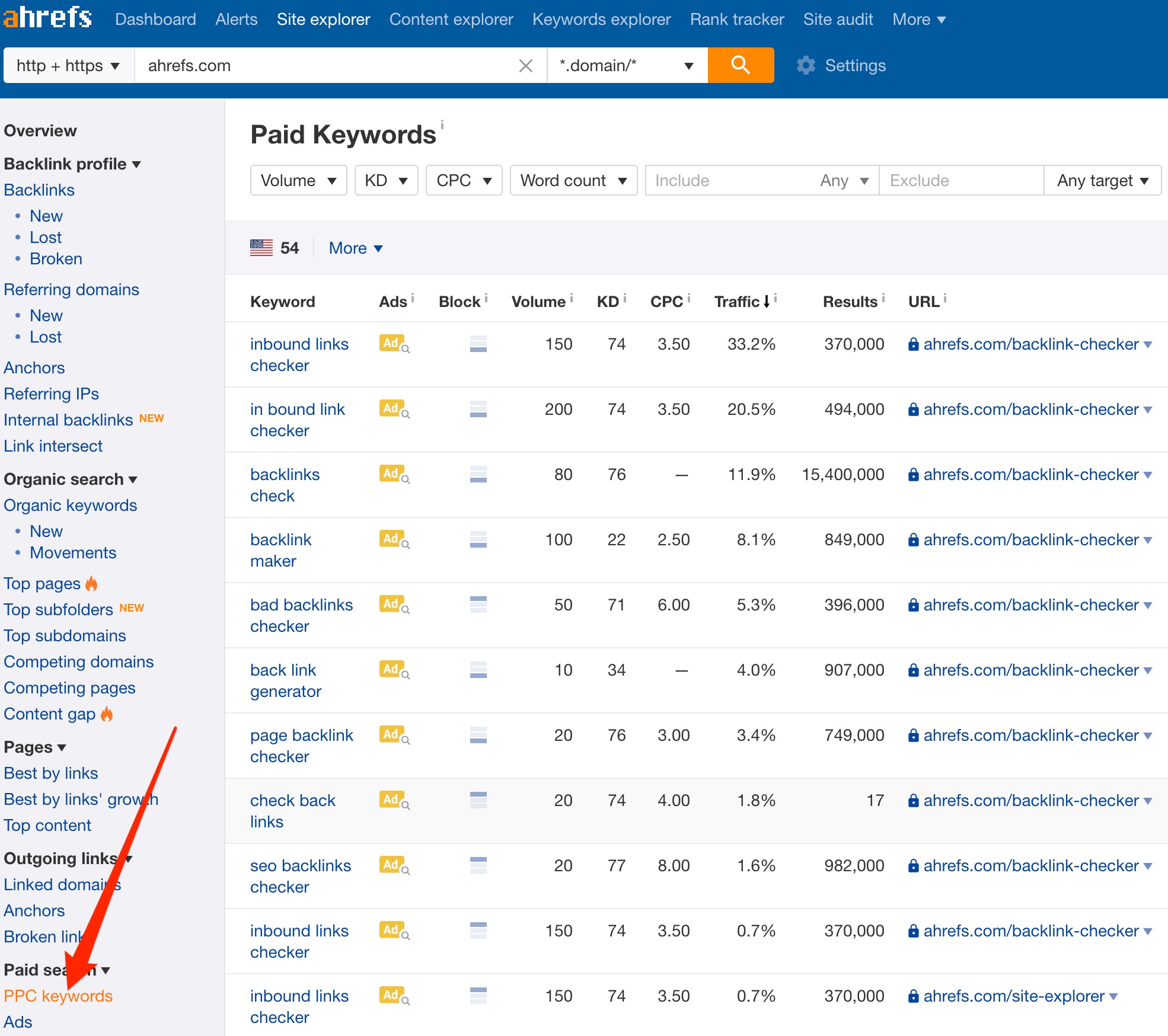
Photo: Ahrefs
Use the “Exclude” filter to remove branded keywords.
Here, you’ll see the keywords your competitors are bidding on, the landing pages they’re sending traffic to, and the ad copy they’re using.
Consider targeting keywords that may also be lucrative for your business via PPC or SEO.
Final Thoughts
Imagine that SEO is an apple and PPC is an orange. Can you say an apple is better than an orange, and vice versa?
Both are fruits. Both provide vitamins. And both are vastly different.
If you want a complete diet, you should have them both.
After all, you should be taking advantage and leveraging all marketing channels that work for your business.
Any questions? Hit me up on Twitter.
Originally posted on Ahrefs.


